
Why Saving Water is Crucial: The Importance of Conserving Water
💧
The Water Crisis
In our rapidly changing world, one of the most pressing issues we face is the scarcity of water. While our planet is covered mostly in water, only a tiny fraction of it is fresh and accessible for human use. With a growing population and increasing demands for water, it is crucial that we start conserving this precious resource.
Environmental Impact
Conserving water is not only necessary to meet our own needs, but it also has a significant impact on the environment. Water scarcity affects ecosystems, wildlife, and plants, leading to a loss of biodiversity and disrupting the delicate balance of nature. By saving water, we can help protect these ecosystems and ensure a sustainable future for our planet.
Reducing Energy Consumption
Did you know that saving water also helps conserve energy? The process of treating, pumping, and heating water requires a considerable amount of energy. By reducing our water consumption, we can decrease the energy demands of these processes and reduce greenhouse gas emissions, contributing to the fight against climate change.
Economic Benefits
Conserving water not only benefits the environment but also has economic advantages. By saving water, we can lower water bills and decrease the costs associated with water infrastructure and treatment. Additionally, sustainable water management practices can create new job opportunities and boost local economies.
Simple Steps to Save Water: Practical Tips for Water Conservation
✅💧 Simple Steps to Save Water: Practical Tips for Water Conservation 💧✅
Saving water is not only important for our environment but also for our own wallets. By adopting a few simple practices, we can make a significant impact on water conservation. In this article, we will explore practical tips that everyone can follow to save water.
💡 Tip 1: Fix Leaky Faucets and Pipes 💡
One of the most basic yet effective ways to save water is by fixing leaky faucets and pipes. A small drip may not seem like a big deal, but a leaking faucet can waste hundreds of gallons of water each year. Regularly check for any leaks in your home and promptly repair them to prevent unnecessary water wastage.
💡 Tip 2: Install Water-Saving Devices 💡
Consider installing water-saving devices in your home. For example, low-flow faucets and showerheads can significantly reduce water usage without sacrificing performance. Additionally, dual flush toilets allow you to choose between a full or partial flush, conserving water with each use.
💡 Tip 3: Opt for Shorter Showers 💡
Taking shorter showers is an easy way to conserve water. By reducing shower time by just a few minutes, you can save gallons of water per day. Consider setting a timer or playing your favorite song to keep track of time and make your shower routine more efficient.
💡 Tip 4: Collect Rainwater 💡
Harness the power of nature by collecting rainwater for various household purposes. Set up rain barrels or tanks to capture rainwater from gutters and downspouts. This collected water can then be used for watering plants, washing cars, or even flushing toilets, reducing the demand for treated water.
💡 Tip 5: Upgrade to Water-Efficient Appliances 💡
When it comes time to replace your appliances, opt for water-efficient models. Look for washing machines and dishwashers with high energy efficiency ratings and water-saving features. These appliances use less water and energy, ultimately helping you save both resources and money.
💡 Tip 6: Water Your Plants Wisely 💡
Be mindful of how and when you water your plants. Watering early in the morning or late in the evening can minimize evaporation loss and ensure that the water is absorbed by the soil instead of being wasted. Additionally, consider using a drip irrigation system or a soaker hose to target the roots directly, avoiding unnecessary runoff.
By following these simple tips, we can all contribute to water conservation efforts in our own homes. Every drop counts, and together we can make a difference in preserving this precious resource. Let’s take action today and start saving water for a better tomorrow. 💦💪
Saving Water at Home: Easy Ways to Conserve Water in Your Daily Life
💧Saving Water at Home: Easy Ways to Conserve Water in Your Daily Life💧
Water is a precious resource that we often take for granted. We use it for drinking, cooking, cleaning, and so much more. However, it’s becoming increasingly important to conserve water as our population grows and our climate changes. In this article, we will explore some easy ways to save water at home and make a positive impact on the environment.
One simple way to conserve water is by fixing leaks in your home. Even a small drip can waste gallons of water over time. Take the time to check your faucets, toilets, and showerheads for any leaks, and repair them promptly. Not only will this save water, but it will also save you money on your water bill.
Another way to save water is by installing low-flow fixtures in your home. These fixtures, such as low-flow showerheads and aerated faucets, reduce the amount of water used without compromising performance. By making this simple switch, you can save thousands of gallons of water each year.
When it comes to washing dishes and clothes, consider using your appliances efficiently. Wait until you have a full load before running your dishwasher or washing machine. This will not only save water but also energy. Additionally, you can reuse the rinse water from your dishes to water your plants, minimizing water waste even further.
Finally, be mindful of your daily habits when it comes to water usage. Turn off the tap while brushing your teeth or lathering your hands with soap. Limit your shower time to conserve water, or even consider taking shorter showers. These small changes can add up to significant water savings over time.
🔹So, the next time you turn the faucet on, remember that every drop counts. By implementing these easy ways to conserve water in your daily life, you can make a difference for both the environment and your wallet. Let’s work together to ensure a sustainable future for generations to come.🔹✅ El emoji relacionado con el tema del H2: 💧
- 🔋 Ahorrar batería en Samsung Watch 6: ¿Cómo prolongar la vida de tu smartwatch?
- 💡✨ Ahorrar energía radiador: Descubre métodos eficientes para optimizar el consumo energético y reducir la factura
- 💰 Descubre 10 😲 Maneras Geniales de Ahorrar Dinero
- 🔥💡 Ahorrar energía con calefacción: ¡Descubre los mejores consejos para maximizar tus ahorros y cuidar el medio ambiente!
- 🔋¡Descubre los mejores consejos para ahorrar batería en Android!📱
The Benefits of Water Conservation: How Conserving Water Impacts the Environment
💧 Water conservation is a crucial practice that has a significant impact on the environment. By conserving water, we can ensure its availability for future generations and mitigate the harmful effects of water scarcity. Conserving water not only benefits us individually but also has broader implications for the planet as a whole.
💧 One of the primary benefits of water conservation is the preservation of natural ecosystems. Freshwater habitats, such as rivers, lakes, and wetlands, are essential for supporting a diverse range of plant and animal species. By reducing our water consumption, we can help maintain these fragile ecosystems and protect the delicate balance of biodiversity.
💧 Conserving water also plays a crucial role in mitigating the effects of climate change. The energy required to treat and transport water contributes to greenhouse gas emissions. By reducing our water usage, we can decrease the demand for energy-intensive water treatment processes, thus reducing our carbon footprint and helping combat global warming.
💧 Additionally, water conservation helps protect our water resources from depletion. As the global population continues to grow, the demand for water increases, and our water sources become more strained. By adopting water-saving habits, such as fixing leaks, using water-efficient appliances, and practicing mindful water usage, we can ensure the sustainable management of this finite resource.
Con este post se destaca la importancia de la conservación del agua y cómo esta tiene un impacto positivo en el medio ambiente. Se mencionan los beneficios de la conservación del agua, como la preservación de los ecosistemas naturales, la mitigación del cambio climático y la protección de nuestros recursos hídricos. Resaltar la relevancia de conservar el agua no solo a nivel individual, sino también en términos del bienestar global y las generaciones futuras.
Water-Saving Technologies: Innovations to Help You Conserve Water
💧💡
Water scarcity is a pressing global issue that requires immediate attention. With the growing population and changing climate patterns, it is more important than ever to find innovative ways to conserve water. Fortunately, advanced water-saving technologies have emerged to help us tackle this challenge head-on.
One of the most significant advancements in water conservation is the development of smart irrigation systems. These intelligent systems use sensors to detect soil moisture levels, weather conditions, and plant water needs. By delivering water directly to where it is needed, smart irrigation systems can significantly reduce water waste compared to traditional methods.
Another innovative technology is the use of greywater recycling systems. Greywater refers to wastewater generated from non-toilet sources, such as showers and sinks. Instead of letting this water go to waste, greywater recycling systems treat and filter it to make it safe for reuse in irrigation or toilet flushing. This technology not only conserves water but also reduces the strain on freshwater resources.
In the realm of plumbing fixtures, water-saving innovations have also made significant strides. Low-flow toilets, for instance, use less water per flush without compromising performance. These toilets are equipped with advanced flushing mechanisms and designs that maximize efficiency. By replacing conventional toilets with low-flow alternatives, households can save gallons of water each year.
The integration of water-efficient technologies in home appliances is another area that deserves attention. Dishwashers and washing machines now come with eco-friendly options that optimize water usage. These appliances utilize sensors and advanced settings to adjust water levels depending on the load size, thereby minimizing waste while still achieving effective cleaning results.
To encourage water conservation in landscaping, drip irrigation systems have gained popularity. These systems deliver water slowly and directly to plant roots, reducing evaporation and runoff. Additionally, drip irrigation enables targeted water delivery, ensuring that each plant receives the right amount of water needed for healthy growth.
Lastly, advancements in rainwater harvesting technologies have revolutionized water conservation efforts. Rainwater is collected from rooftops and funneled into storage tanks for future use. This harvested water can be used for various purposes, such as irrigation, cleaning, and even drinking with proper filtration. Rainwater harvesting not only helps to reduce water consumption but also provides an alternative water source during periods of drought.
As water becomes an increasingly scarce resource, embracing technology and implementing water-saving innovations is essential for a sustainable future. These advancements in smart irrigation, greywater recycling, low-flow fixtures, water-efficient appliances, drip irrigation, and rainwater harvesting offer practical solutions to help us conserve water and protect our precious environment. Let’s embrace these technologies and make a difference in the global effort to preserve our most valuable resource: water.
Top Reasons to Save Water: Understanding the Urgency of Water Conservation
✨💧
Saving water is not only a personal responsibility but also a global imperative. With the increasing scarcity of water resources, understanding the urgency of water conservation has become crucial. In this article, we will explore the top reasons why saving water should be a top priority for everyone.
1. Environmental Impact: Water is a finite resource, and wasting it can have severe consequences for the environment. By conserving water, we can reduce the strain on ecosystems, preserve natural habitats, and support biodiversity. Every drop saved helps to protect our planet’s delicate balance.
2. Water Scarcity: Despite covering most of the Earth’s surface, only a small percentage of water is available as freshwater. Population growth, climate change, and pollution have all contributed to an increasing water scarcity crisis. By saving water, we can ensure a sustainable supply for future generations.
3. Energy Consumption: Water and energy are closely interconnected. The process of treating, pumping, and distributing water requires a significant amount of energy. By conserving water, we can also reduce energy consumption, mitigating the environmental impact associated with energy production.
4. Economic Benefits: Saving water can also have positive economic effects. By using water efficiently, individuals and businesses can reduce their water bills. Additionally, investing in water-saving technologies and practices can create job opportunities within the water conservation industry.
5. Food Security: Agriculture accounts for a substantial portion of global water consumption. Saving water is crucial to ensure food security, as water scarcity can lead to crop failures and food shortages. By adopting sustainable irrigation methods and promoting water-efficient farming practices, we can safeguard our food supply.
6. Climate Change Adaptation: Climate change exacerbates water scarcity and poses new challenges to water management. By saving water, we can adapt to the changing climate, reducing the vulnerability of communities to droughts and water-related disasters.
Understanding the urgency of water conservation is essential in addressing the pressing issues related to water scarcity, environmental degradation, and climate change. By taking simple steps to save water in our daily lives, we can contribute to a more sustainable and resilient future. Let’s join forces and make a difference for our planet! 💦🌍
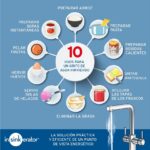 💧💡 Ahorrar agua caliente: consejos para reducir tu consumo diario
💧💡 Ahorrar agua caliente: consejos para reducir tu consumo diario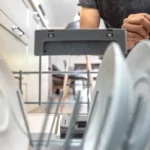 💧💰 ¡Descubre cómo ahorrar agua con tu lavavajillas y reducir tu factura! 💧💰
💧💰 ¡Descubre cómo ahorrar agua con tu lavavajillas y reducir tu factura! 💧💰 💰 ¡Aprende cómo ahorrar 6000 euros al año! Guía completa y efectiva para aumentar tus ahorros 💸
💰 ¡Aprende cómo ahorrar 6000 euros al año! Guía completa y efectiva para aumentar tus ahorros 💸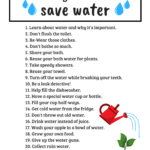 💧 Saving Water in English: Top Tips and Strategies to Conserve Water
💧 Saving Water in English: Top Tips and Strategies to Conserve Water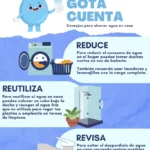 🚰💧 ¡Ahorra agua cada gota cuenta! Descubre los mejores consejos para ser más sustentable en casa
🚰💧 ¡Ahorra agua cada gota cuenta! Descubre los mejores consejos para ser más sustentable en casa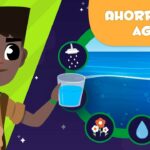 🌊💧¡Ahorrar agua con dibujos animados! Descubre cómo enseñar a los niños sobre la importancia de cuidar el agua en un mundo divertido y educativo. 🎉🖍️
🌊💧¡Ahorrar agua con dibujos animados! Descubre cómo enseñar a los niños sobre la importancia de cuidar el agua en un mundo divertido y educativo. 🎉🖍️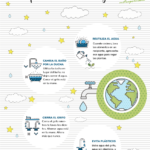 🚿💧 Ahorrar agua en el baño: consejos sencillos para ser más eco-friendly en tu rutina diaria
🚿💧 Ahorrar agua en el baño: consejos sencillos para ser más eco-friendly en tu rutina diaria 💧 Los mejores ejemplos para 💦 ahorrar agua y cuidar nuestro planeta
💧 Los mejores ejemplos para 💦 ahorrar agua y cuidar nuestro planeta 💧🏠 Ahorrar agua en el hogar: consejos prácticos para hacerlo de manera eficiente
💧🏠 Ahorrar agua en el hogar: consejos prácticos para hacerlo de manera eficiente